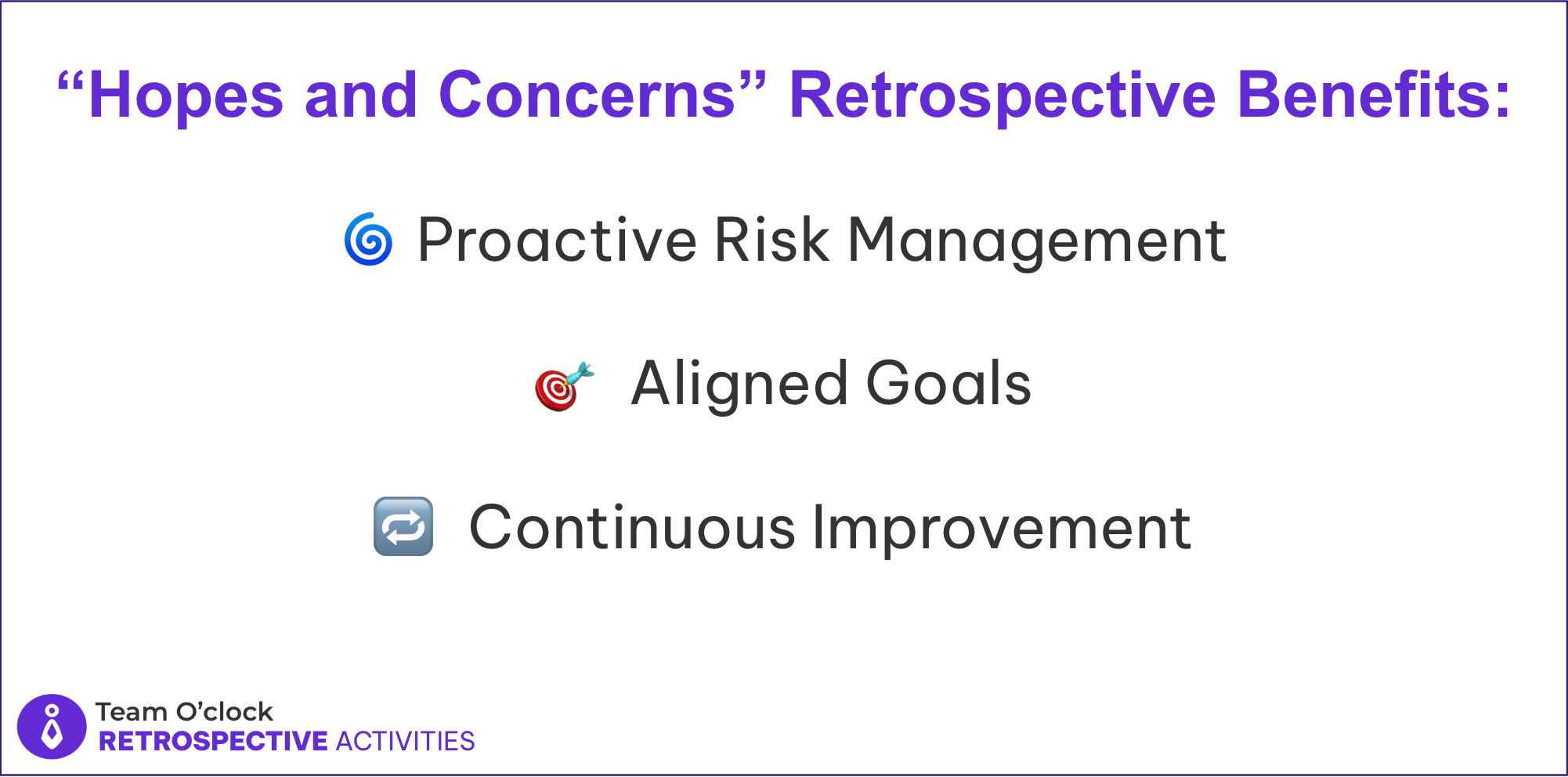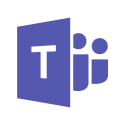
What You Need to Know About the "Hopes and Concerns" Retrospective Template

When it comes to agile software development, continuous improvement is the base of success. Retrospective meetings provide a platform for teams to reflect on their past performance, identify areas for improvement, and chart a course for the future.
However, without a structured approach, these meetings can sometimes lack focus and fail to yield actionable insights.
Introducing the "Hopes and Concerns" retrospective template – a powerful tool that enables teams to share their aspirations and concerns before starting a new circle, setting the stage for success from the outset.
What is the "Hopes and Concerns" Retrospective Template?
The "Hopes and Concerns" retrospective template is designed to bring forth team members' expectations and reservations regarding an upcoming item or work increment, whether a sprint, project milestone or new feature release.
It operates on the principle that acknowledging positive aspirations and potential challenges upfront can improve alignment, transparency, and proactive problem-solving within the team.
How the "Hopes and Concerns" Retrospective Template Works
Preparation: Before the retrospective meeting, team members are encouraged to reflect on their hopes, what they anticipate achieving or experiencing, and their concerns, such as any perceived obstacles or risks.
Sharing: During the meeting, each team member shares hopes and concerns in the two columns. Sharing clarifications on added notes improves open communication and mutual understanding.
Discussion: As hopes and concerns are voiced, the team engages in constructive dialogue, exploring strategies to work on opportunities and address potential challenges.
Action Planning: Based on the insights gained from the discussion, the team collaboratively develops action plans to act on hopes and counter concerns of interest.
The Benefits of Using the "Hopes and Concerns" Retrospective Template
Implementing the "Hopes and Concerns" retrospective template offers a lot of benefits for agile teams, including:
Proactive Risk Management: aligning the team over common concerns early, minimizing disruptions, and ensuring smoother and timely project execution.
Aligned Goals: It aligns individual hopes with collective objectives, promoting synergy and collaboration.
Continuous Improvement: It facilitates ongoing refinement of processes, driving continuous improvement and innovation.

How to Implement the "Hopes and Concerns" Retrospective Template:
Implementing the "Hopes and Concerns" retrospective template is a straightforward process that involves only a few simple steps:
Introduce the template to the team and explain its purpose and benefits.
Encourage team members to reflect on their hopes in the "Hopes" column and their concerns in the "Concerns" column before the retrospective meeting.
Facilitate a discussion during the meeting where each team member shares their thoughts.
Collaboratively develop action plans based on the insights gained.
What Are the Potential Challenges and Opportunities?
While implementing the "Hopes and Concerns" retrospective template, teams may encounter challenges such as:
Resistance to change or sharing concerns openly.
Overemphasis on either just the hopes or concerns leads to imbalance.
Difficulty in translating insights into actionable plans.
These challenges, however, present opportunities for growth and improvement, fostering a culture of openness, collaboration, and adaptability within the team.
How to Maximize the Effectiveness of the "Hopes and Concerns" Retrospective
Maximize the effectiveness of the "Hopes and Concerns" retrospective template by considering the following tips:
Promote safety and inclusivity where team members feel comfortable sharing their thoughts.
Encourage active listening and constructive feedback during the discussion.
Maintain focus on actionable insights and follow through on action plans.
Continuously iterate and refine the retrospective process based on feedback and outcomes.
Takeaway
In conclusion, the "Hopes and Concerns" retrospective template is a valuable tool for agile teams seeking to optimize performance and drive meaningful outcomes. By harnessing the collective wisdom of team members and fostering a culture of openness and collaboration, this template equips teams to navigate challenges with confidence and capitalize on opportunities with clarity.
Incorporating this template into your retrospective meetings can propel your team toward greater agility and success.

More articles to check

Assist your team's growth with our partnership program:








